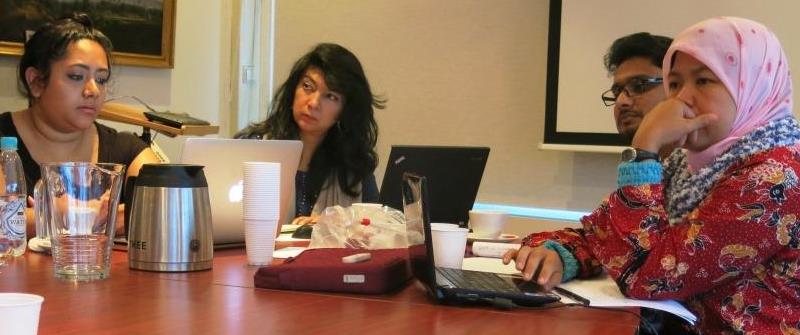
16 Jan Female Islamic authority in contemporary Asia
On 8 and 9 January 2015, KITLV hosted an international workshop on female Islamic authority in contemporary Asia. The workshop elaborated on preceding events – and a growing literature on the topic – while exploring new questions, analytical frameworks and comparisons that may further develop the study of Islamic authority more generally, and female Islamic authority in particular.
The participants, including researchers from abroad and discussants from Leiden and elsewhere in The Netherlands, discussed a range of relevant themes, including state support and top-down certification of female Islamic authority, the issue of community-based authority, the reception by male religious leaders, the question of achieved versus ascribed authority, the role of women in processes of Islamic reform, contestations about women’s rights and gender equality, and the relationship between gender and other important factors, such as class, (local and national) politics, transnational connections, and individual and collective agency. A major theme connecting all papers and discussions was the importance of locality, and the ways in which bottom-up initiatives reinforce, clash with, or otherwise relate to the various ways in which (state and religious) institutions enable and constrain various forms of female Islamic leadership.
The workshop was convened by Mirjam Künkler (Princeton University/KITLV) and David Kloos (KITLV) and co-funded by KITLV, the Asia Modernities and Traditions Research Program (AMT) of Leiden University, the International Institute of Asian Studies (IIAS), the Leiden University Centre for the Study of Islam and Society (LUCIS), and the Leiden University Fund (LUF). The conveners and KITLV wish to express their gratitude for their generous support in realizing an inspiring and fruitful workshop.




No Comments